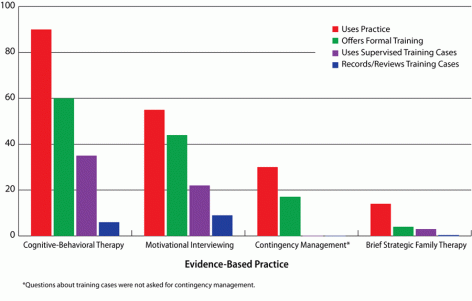Training Gaps for Evidence-Based Practices
Ninety percent of privately funded substance abuse treatment programs in the United States offer cognitive-behavioral therapy (CBT), but one-third of these do not provide their counselors with any formal training in the intervention. Still fewer employ the individualized training methods—supervised training cases and supervisor review of actual patient sessions—that experts recommend to ensure counselors’ proficiency and adherence to CBT. A survey of the 340 directors of a nationally representative sample of treatment programs also documented substantial training gaps for three less widely used evidence-based interventions: motivational interviewing, contingency management, and brief strategic family therapy. The researchers from George Mason University, the University of Georgia, and the Yale University School of Medicine who conducted the survey suggest that counselors who do not receive formal training may not realize the interventions’ full potential to help their patients. The researchers also point out that increased job satisfaction has been associated with training.
Source
Olmstead, T.A., Abraham, A.J., Martino, S., and Roman, P.M. Counselor training in several evidence-based psychosocial addiction treatments in private U.S. substance abuse treatment centers. Drug and Alcohol Dependence 120(1-3):149–154, 2012. Abstract Available



